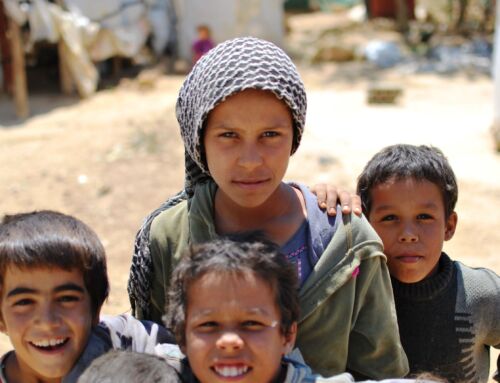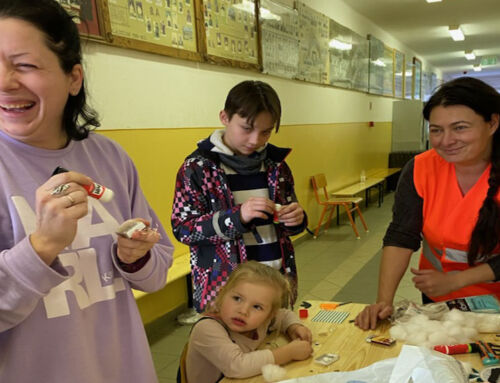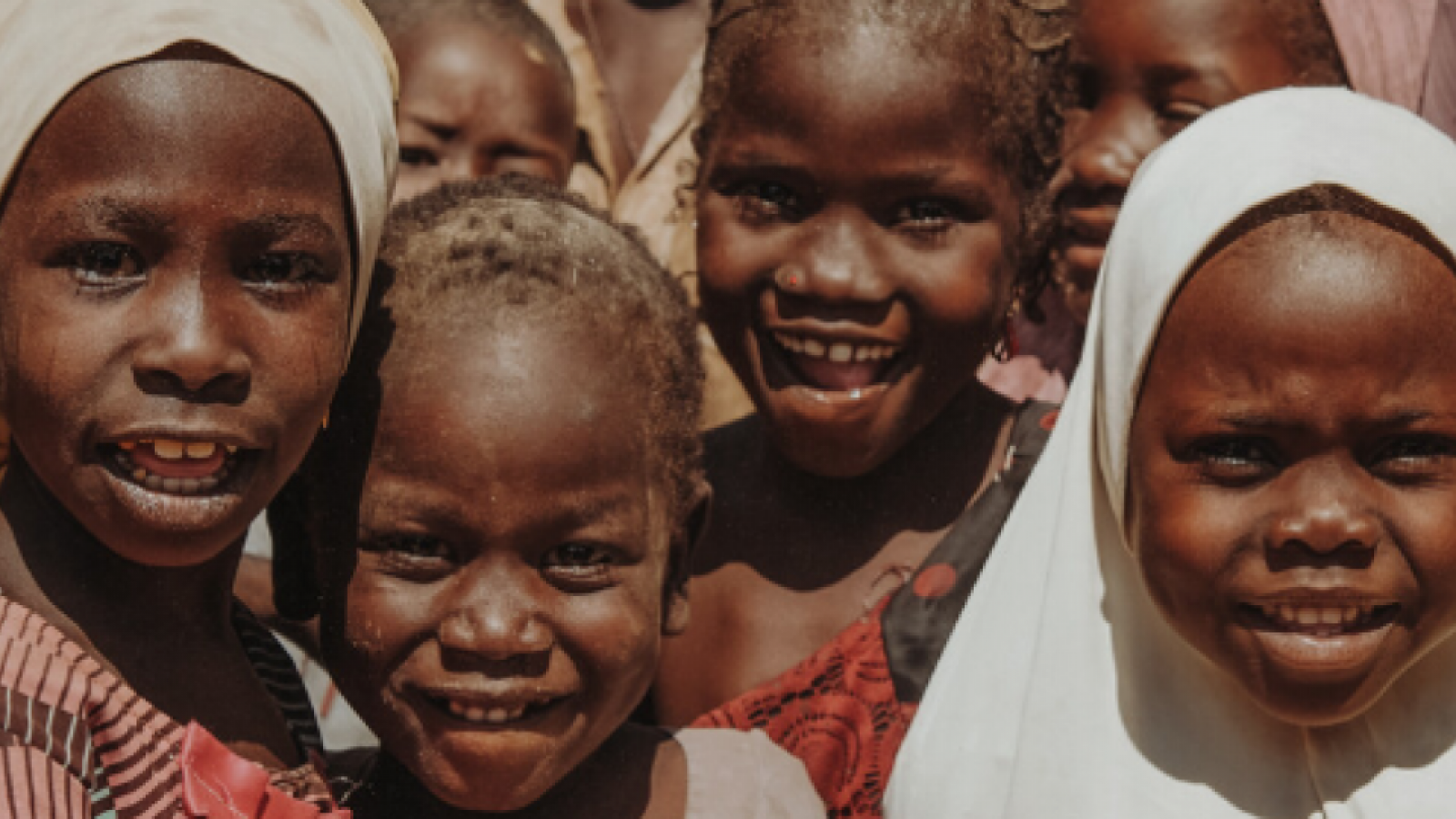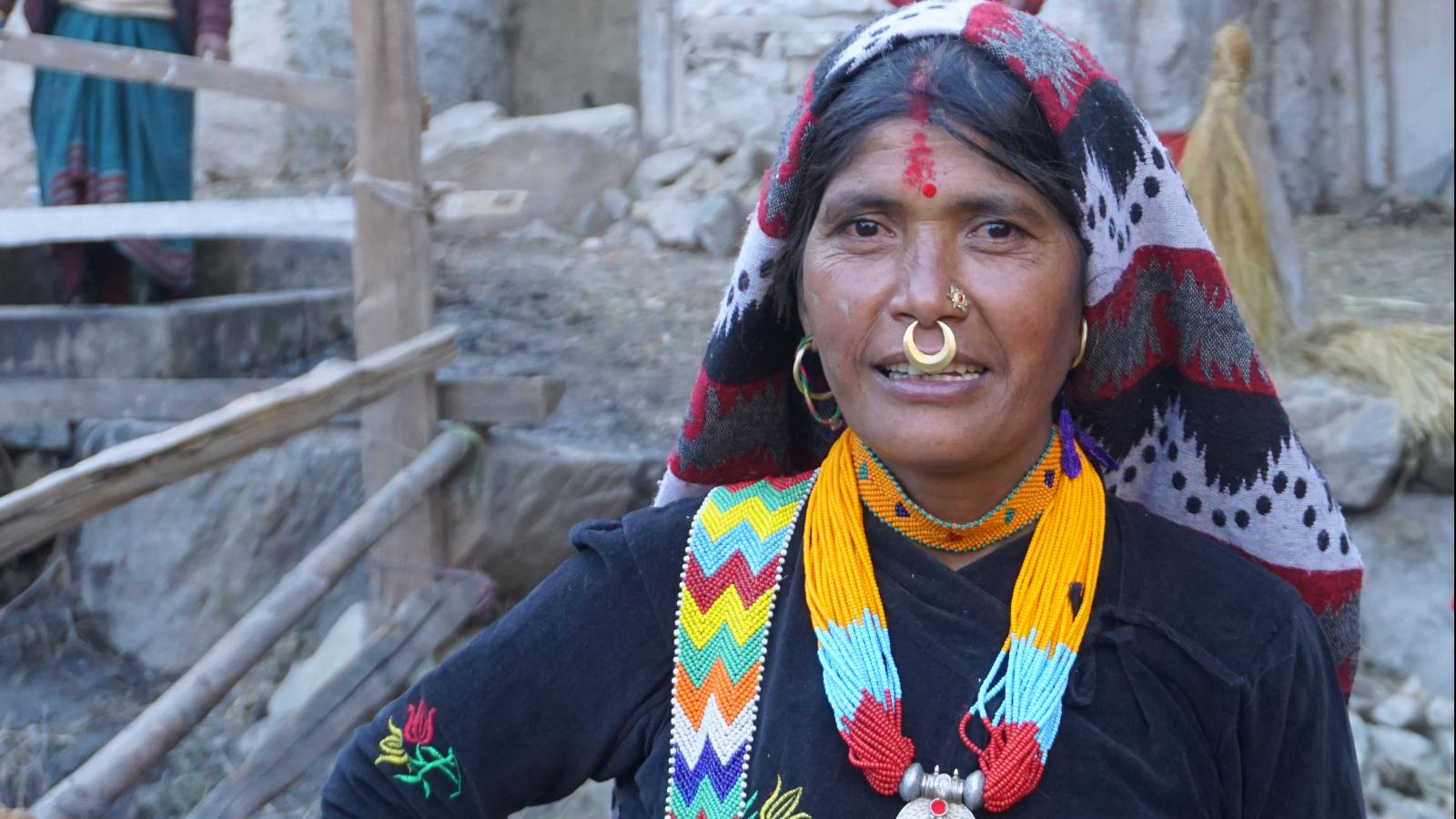Do you have a strong track record in evaluation of international cooperation programs?
Can you demonstrate experience in carrying out research involving with people with disabilities with focus on climate adaptation projects in fragile contexts?
And are you able to provide advocacy and programmatic recommendations to a variety of stakeholders?
You may be the consultant we are looking for!
Mission East (MEED) and our partners are currently searching for a consultant for the project “Inclusive Climate Solutions: Lessons for Disability-Inclusive Climate Programming and Advocacy in Fragile States”. This project is undertaken in collaboration with DPOD and our partners, with MEED being the lead organisation.
Disabled People’s Organisations Denmark (DPOD) is an umbrella organisation established in 1934 and consisting of 36 member organisations. We represent people with all types of disabilities, visible and non-visible, from brain damage and arthritis to developmental disabilities and mental illness. We represent Danish disability organisations in national and international co-operation and have a total of around 400.000 members across all our member organisations.
We support cooperation between Danish disability organisations and like-minded organisations in the Global South – founded on a shared aim of realising the UN Convention on the Rights of Persons with Disabilities to the fullest. We work in partnerships with national federations of organisations of persons with disabilities, and we aim to promote that Danish development assistance becomes inclusive of persons with disabilities.
Terms of Reference
Background for the consultancy
In 2023, a disability rights report by IDA revealed that states are failing to meet their human rights obligations toward people with disabilities in the context of the climate crisis. The report highlights the need for disability-inclusive climate justice at local and international levels, and that research on mitigation, adaptation, and loss and damage for people with disabilities is lacking. Similarly, an IPCC report from 2022 found that only 1% of 1,682 climate adaptation papers considered people with disabilities.
There is a clear demand for more disability-inclusive climate research, particularly in fragile contexts. Understanding how the climate crisis impacts people with disabilities, and the extent to which people with disabilities are included in climate-related decision-making forums, policies, and programs, is essential.
Furthermore, it is important to enhance our understanding of how the marginalisation faced by people with disabilities in terms of their right to health, access to services, food security, water, infrastructure and a peaceful society, is connected to the impact of the climate crisis.
The knowledge and best practices uncovered in this study should guide our policies, programs and advocacy efforts to enhance climate solutions and promote equity, inclusion and climate justice, both globally and in the communities we serve.
As consultant, your objectives will be:
- To understand the impact of the climate crisis on people with disabilities in fragile & volatile contexts in 3-4 countries in Africa and Asia (including Afghanistan and Nepal, security permitting)
- To evaluate and gather lessons learned and best practices of programming addressing the effects of the climate crisis on people with disabilities, with all their intersecting identities (e.g. poverty, gender, caste/ethnicity/social grouping, age, and other relevant factors)
- To evaluate and gather lessons learned and best practices of policies addressing the effects of the climate crisis on people with disabilities, with all their intersecting identities (e.g. poverty, gender, caste/ethnicity/social grouping, age, and other relevant factors)
- To provide recommendations on how to improve the inclusion of people with disabilities in climate adaptation programming, especially in the areas of FSL, WASH, and water resource management
- To inform evidence-based programming in order to prevent and reduce the negative impacts of the climate crisis on individuals with disabilities
- To identify and understand the advocacy opportunities at local and global levels, with a particular emphasis on how people with disabilities, and their representative organisations, can influence policymakers’ decisions on climate action
We expect you to deliver following outputs:
- Inception report. The inception report should not exceed 5 pages and must be provided in English. The inception report should detail overall methodology, proposed timeframe for activities and deliverables, and include an interview guide.
- Draft report for feedback by MEED and participating organisations. The report should take its point of departure in these terms of reference. The draft report should detail initial findings and programming and advocacy recommendations. The report should not exceed 28 pages (excl. annexes). The report and all other materials must be provided in English.
- The final report should take its point of departure in these terms of reference. The final report should incorporate comments made to the draft report by MEED and participating organisations. The final report should include an executive summary and clear recommendations for improvements to programming and for advocacy points to be taken forward at local and global levels. The report should not exceed 28 pages (excl. annexes). The report and all other materials must be provided in English. The report will be subject to approval by MEED.
- Debriefing to study participants and participating organisations
More detail on the objectives and outputs of the consultancy will be discussed during interviews and after contracting.
Methodology & Timeline
Timeline
The assignment has been scoped for approx. 30 days of work with the following provisional schedule:
- Preparation phase: 3 days. Includes preparation of inception report.
- Field phase: Approx. 22 days, provisionally to be split between 3 countries in Africa and Asia, with the possibility of extending to a fourth country. Includes completion workshop with local participants.
- Finalisation phase: 5 days. Includes final report and presentation of findings to MEED and participating organisations.
- It is envisaged that the consultancy will start around end of April 2024.
- The consultant should be ready to travel in May/June.
- The draft report should be submitted for feedback by participating organisations by 11th August.
- The final report should be submitted by 28th August.
Method of work
The consultant is envisaged to work via:
- Literature Review and Document Analysis:
Examine existing scientific literature, reports, and studies that specifically address the impact of the climate crisis on people with disabilities in fragile/volatile contexts in order to- Understand the current state of knowledge and identify gaps or areas requiring further investigation
- Review project documents from participating organisations
- Data Gathering:
- Primary Data Collection: Conduct surveys, interviews, and field observations to gather information, with a particular focus on the inclusion of people with disabilities
- Secondary Data Sources: Utilise government reports, climate data, socioeconomic data, and other existing datasets
- Stakeholder Engagement:
- Consultations: Seek input from communities, policymakers, experts, and practitioners
- Workshops and Focus Group Discussions: Facilitate discussions to understand diverse perspectives and gather insights
- Impact Analysis:
- Assess the effects of climate change on different sectors, regions, and vulnerable populations as detailed above
- The consultant is encouraged to consider using a mixed-methods approach to capture both the extent of the impact of the climate crisis of people with disabilities in fragile/conflict-affected countries, as well as its contextual and subjective dimensions
- Policy Analysis:
- Evaluate existing government policies and strategies related to the climate crisis to understand levels of disability inclusion
- Identify areas for improvement and inform policy decisions at local and global levels
Background Information
Documents and materials related to programming in the selected countries will be made available to the consultant on signature of the Terms of Reference.
Logistical arrangements
The work will be carried out in 3-4 countries in Africa and Asia (incl. Afghanistan and Nepal, security permitting). MEED and partners will be responsible for organising and facilitating the logistics to and in the selected countries and will provide access to all relevant project documents. The consultant is expected to plan and organise their own work, incl. whether the consultant expects to hire local consultants. The consultant will be responsible for taking out adequate travel insurance.
Selection criteria:
- Proficiency in performing social research, evaluation of international cooperation programs. Skilled in managing participatory evaluation processes.
- Extensive relevant experience (at least 5 years) on working in the fields of climate change adaptation
- Demonstrated experience in carrying out research involving with people with disabilities
- Demonstrated experience in food security & livelihoods and water
- Willingness to travel to and carry out research in fragile/conflicted affected locations
- Ability to provide advocacy and programmatic recommendations to key stakeholders
- Proficient in using both qualitative and quantitative methods for social research, including data collection and analysis
- Strong analytical abilities in order to present findings, draw conclusions, and prepare well-written reports
- Fluent in written and spoken English
- Good understanding and appropriate sensitivity regarding different cultures and traditions
The final decision for this consultancy will be based on:
- Match with selection criteria
- Value for money
Other Requirements if selected:
- Mission East will require you to sign our organisational Code of Conduct.
- Mission East upholds high standards in Counter Terrorism (COTER) and sanctions regulation compliance. In view of the nature and location of Mission East’s work, Mission East will conduct background checks of the successful consultant, including checking through relevant sanctions lists.
- You will also be required to commit to the following clause relating to the Prevention of Sexual Exploitation, Abuse and Harassment : The consultant agree to actively prevent sexual exploitation, abuse and harassment (PSEAH), and to ensure, in the best possible way, that the intervention is carried out in an environment free of all kinds of exploitation, abuse and harassment, sexually or otherwise, especially in the case of particularly vulnerable groups.
- Mission East upholds high standards in all aspects of Safeguarding. In view of the nature of this role potentially requiring unsupervised access to vulnerable individuals (including situations where there are potential imbalances of power), you may be required to provide a certificate of good conduct.
Anti-Fraud Policy:
Mission East has a zero-tolerance approach towards corruption and fraud in all its forms. Mission East aims to prevent fraudulent activities and to respond to any allegations or potential fraud swiftly and effectively. In line with Mission East’s Anti-Fraud Policy, which can be viewed on Mission East’s website, Mission East requires the consultant to report any suspected fraud, waste, theft or abuse to Mission East. Any reports of such misconduct can be reported to Mission East headquarters through contact details on their website.
Exclusion criteria:
If any of the following situations, which are further detailed in the required Eligibility Statement, are true for the applicant at the time of submitting their application or at any time during the procurement process, they will be excluded from consideration for winning a contract with Mission East. The bidder may also be blacklisted for participation in future Mission East procurements.
- Violations of sanctions & support for terrorism
- Unacceptable interaction with Mission East
- Unethical practices by the bidder
- unacceptable legal situation of the bidder
Basis of payment:
A payment schedule is to be determined during contract negotiations.
Application
Deadline for application: 21 April 2024 midnight (CET)
If you have any questions about the position, please, contact Fie Ostergaard på fos@missioneast.org.
You apply by clicking on “Apply for this job”, filling in the form and uploading:
- your CV including 3 references
- a Cover letter
- A track record of conducted studies, research, publication
- Your technical proposal for the project, including proposed methodology and work plan
- Your financial Proposal (please, note that per-diems are not issued as part of consultancies with Mission East. Please take this into consideration in the financial proposal)
- Eligibility Statement (our form to be downloaded here and signed)
- A sample of recent work, relevant to these terms of reference
Remember to click on “Submit application” at the bottom of the page.
Mission East wants to promote equality and diversity, and we therefore encourage all qualified people to apply for the assignment – regardless of ethnic background, gender, age, sexual orientation, disability or religion.











